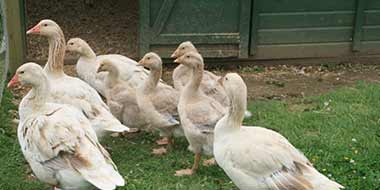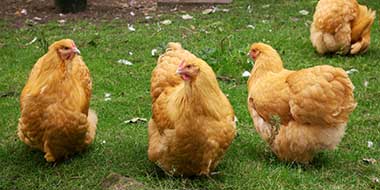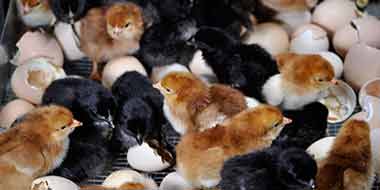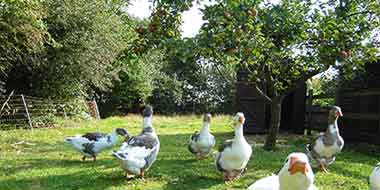The eye is obviously very delicate and any cleaning should be performed with great care.
Blindness isn’t a particularly common problem, however poultry can get damage to the eye, conjunctivitis or even go completely blind for a number of different reasons.
Here are some of the causes that poultry can go blind:
- Crested birds such as the Poland can have feathers grow into the eye.
- Some types of Marek’s disease can cause the eye to go grey and the bird becomes partially or completely blind.
- Ammonia levels caused by droppings left in the coop with insufficient ventilation can cause the cornea in the eye to become damaged. It will not usually recover, even if the conditions are changed. Ammonia is easy to smell, put your head inside the coop first thing in the morning and ensure you cannot smell it. Adequate ventilation and cleaning and ensuring the birds are not overcrowded will prevent this problem.
- Scratches and physical trauma to the eye.
- Respiratory infections in the upper respiratory tract – Sinusitis and Mycoplasma Gallisepticum can cause a secondary infection to affect the eye. Puss can ‘stick’ the eye lids together causing temporary blindness.
Antibiotic eye drops available from your vet are useful for infections.
Partial blindness
Partial Blindness should be suspected if a chicken misses the mark when pecking. This can be caused by a trauma to an eye such as a scratch but will normally only affect the one eye. If the bird is missing the mark, the most common cause is a Vitamin A deficiency.
Blood spots in eggs can also increase with Vitamin A deficiency so be on the look out for these.
Deficiency is unlikely to occur from improper diet (especially these days with formulated balanced feeds being available), but is more likely an underlying health problem that is causing absorption difficulties within the digestive system such as Worms, or Coccidiosis.
Look for other signs and symptoms for the underlying problem and treat accordingly. To help with the Vitamin A deficiency, Cod Liver Oil, (2%) mixed into the normal food ration can help. Too much Vitamin A is toxic to chickens so don’t go overboard!




